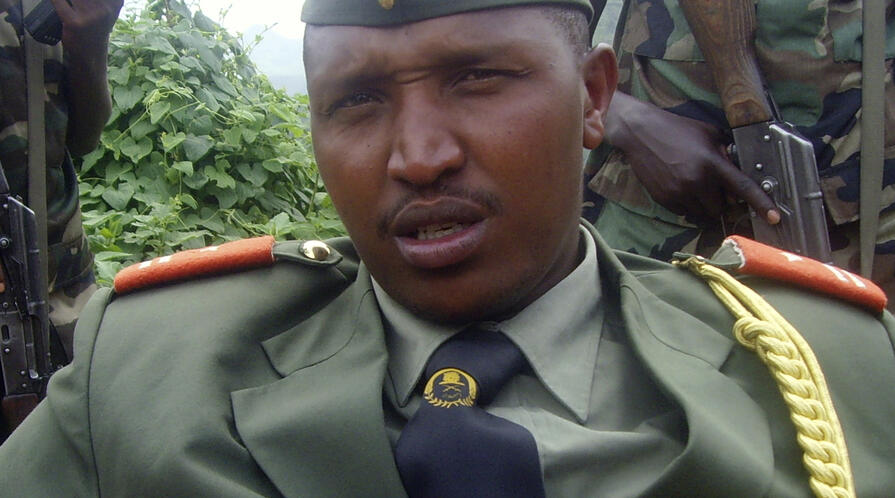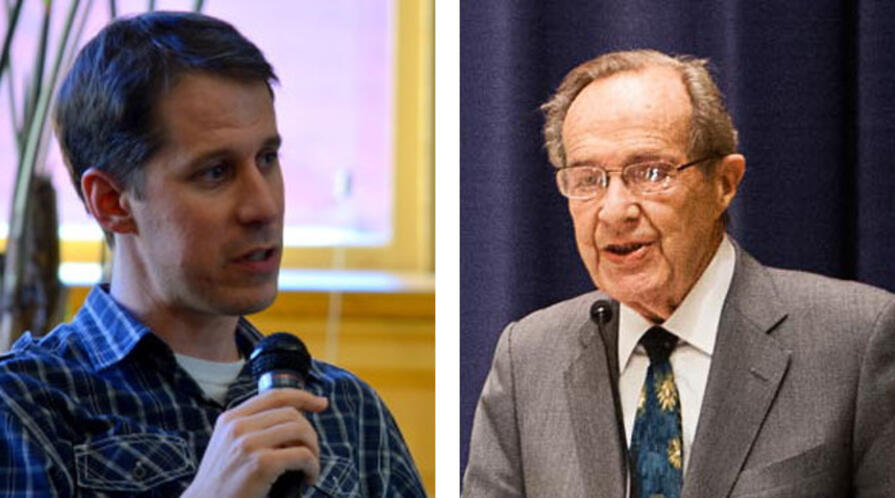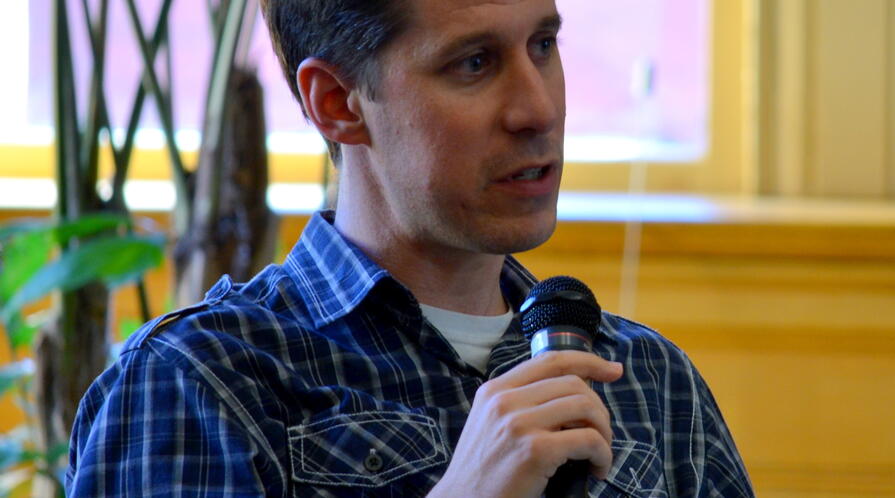Joseph Felter, a senior research scholar at the Center for International Security and Cooperation and retired U.S. Army Special Forces colonel, spent much of his military career in areas impacted by insurgency and civil war, gaining firsthand knowledge about the complex nature of threat environments. Later, as a Stanford Ph.D. student in political science, Felter was struck by the significant barriers confronting scholars conducting research on the dynamics of politically motivated violence and conflict.
Prior to deploying to Afghanistan in late 2009, Felter joined forces with Jake Shapiro, an assistant professor of politics and international affairs at Princeton University, to build a team of researchers and establish the Empirical Studies of Conflict Project (ESOC). They wanted to make conflict analysis easier for academic colleagues and create mechanisms that would allow them to share their results with military and government decision-makers.
They spent the last four years building a team of scholars from across multiple universities committed to conducting high-quality, evidence-based conflict research. The team developed an open-source website devoted to compiling micro-data and analysis on insurgency, civil war and other politically motivated violence around the world. The site launched this week, with the stated goal of “empowering the nation’s best minds with the quality of data and information needed to address some of the most enduring and pressing challenges to international security.”
The U.S. government and its allies produce massive amounts of data for their internal use, ranging from public opinion surveys and administrative tracking data on spending, to detailed incident reports on conflict. But this information is rarely made available outside official channels.
The site hopes to empower the nation’s best minds with the quality of data and information needed to address some of the most enduring and pressing challenges to international security." - Felter
“Consequently, military commanders and government policymakers are denied a significant pool of expertise, and outside scholars lose the potential to better support national security priorities,” said Felter, former director of the Combating Terrorism Center at West Point and commander of the International Security Assistance Force’s Counterinsurgency Advisory and Assistance Team in Afghanistan, reporting directly to both U.S. Army Gens. Stanley McChrystal and David Petraeus.
The independent research by the Empirical Studies of Conflict Project is supported in part by a variety of research grants including a substantial one from the Defense Department’s Minerva Research Initiative, administered through the Air Force Office of Scientific Research. The Institute on Global Conflict and Cooperation at UC San Diego and the Hoover Institution at Stanford have provided critical resources and archival support. Private supporters include the Palo Alto-based data analysis software company, Palantir Technologies, which made a significant donation of software licenses for use by ESOC researchers.
Felter said the website is designed to make it easier for other conflict scholars to do the kind of research that can make for better decisions and more efficient allocation of resources by military leaders and civilian policymakers, thereby enhancing security and good governance worldwide.
|

|
|
CISAC's Joe Felter, left, and Eli Berman of UCSD on a research mission in Chamkani, eastern Afghanistan in April 2010.
Photo Credit: Joe Felter
|
“Decisions of great consequence are made by leaders of operational units in the field and by government decision-makers, based on the best information and analysis available to them at the time,” Felter said. “I’ve advised senior leaders in Iraq and Afghanistan and can attest that more and better data-driven analysis is in great demand. The stakes are high; literally life and death in some cases. We hope this website and the data it makes available to the broader scholarly community can help inform important decisions and policymaking.”
The ESOC website supports three of ESOC’s core objectives:
-
To answer key analytical questions for policymakers and those on the ground in insecure areas to help them manage conflicts and respond to security threats;
-
To harness the expertise of leading scholars and provide them with the detailed sub-national data required to provide cutting-edge analytical support to policymakers at government agencies and non-governmental organizations;
-
And to maintain a repository of quality data across multiple cases of conflict and make these data available to a broad community of scholars, policy analysts and military strategists.
"One of the critical barriers to getting more top-notch research done on policy-relevant problems in the areas of security and development is the huge investment it takes to build data on areas experiencing or emerging from conflict,” said Shapiro, a Navy veteran who teaches at Princeton’s Woodrow Wilson School of Public and International Affairs.
“The ESOC website is designed to dramatically lower that barrier by making available a broad range of data which took our team years to develop,” he said. “In doing so, we hope to promote careful empirical work on how to reduce conflict, rebuild order, and apply scarce aid and security resources more effectively."
The site is devoted to data on Afghanistan, Colombia, Iraq, Pakistan, Philippines and Vietnam, with more countries to be added in coming years. There are hundreds of maps, geographical, demographic and socioeconomic data files, links to publications and university databases and other materials related to the study of conflict.
Felter said that as a result of their research, ESOC members have uncovered significant new findings, some of which has been shared with decision-makers in the field. “In Afghanistan, for example, we were able to provide empirical evidence that conflict episodes resulting in civilian casualties led to an increase in attacks against coalition forces in Afghanistan. These findings were briefed to senior leaders in the International Security and Assistance Force as well as to the Chairman of the Joint Chiefs of Staff.”
“I’ve advised senior leaders in Iraq and Afghanistan and can attest that more and better data-driven analysis is in great demand. The stakes are high; literally life and death in some cases." - Felter
They also were able to facilitate the release of data on insurgent attacks and aid spending in Iraq to test theories on what led to the dramatic reduction in violence in 2007. With aid spending, they found that the use of impromptu humanitarian relief projects could help gain popular support and cooperation, leading to a reduction in insurgent violence, but that large-scale aid projects could have the opposite effect.
"Four years ago, practitioners would ask us how to best implement development projects in Afghanistan, Iraq, and other conflict zones. We could only shrug,” said Eli Berman, a UC San Diego economics professor, research director for international security at the UC Institute on Global Conflict and Cooperation, and ESOC member. “Today, we can confidently give advice based on solid evidence: projects are likely to be violence-reducing if they are modest – say less than $50,000 – secure from destruction and extortion, informed by development experts and conditional on government forces controlling the territory.”
Felter and Shapiro hope that new discoveries by ESOC researchers and by scholars working with micro-conflict data made available by ESOC can help shape American counterinsurgency doctrine as it evolves going forward.
“ESOC works collaboratively with other institutions dedicated to making data available to the scholarly community, such as West Point’s Combating Terrorism Center, where ESOC researchers are engaged in a new joint project building data from recently released documents from the Iraqi insurgency,” Felter said.
Other ESOC members include:
-
James D. Fearon, Theodore and Frances Geballe Professor in the School of Humanities and Sciences and Professor of Political Science at Stanford University
-
David D. Laitin, the James T. Watkins IV and Elise V. Watkins Professor of Political Science at Stanford University.
-
Jeremy M. Weinstein, Associate Professor of Political Science and Senior Fellow at Stanford's Freeman Spogli Institute for International Studies. He serves as director of the Center for African Studies, and is an affiliated faculty member at CISAC and the Center on Democracy, Development, and the Rule of Law
|

|
|
Somali mother and child.
Photo Credit: Nicholai Lidow
|






